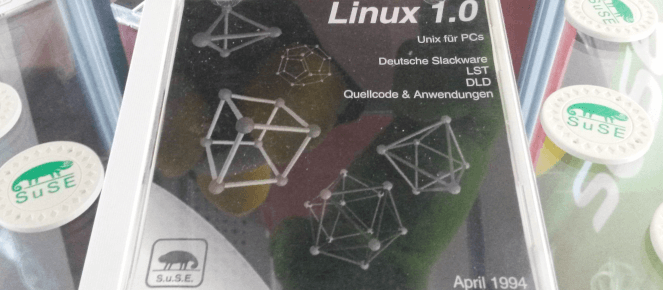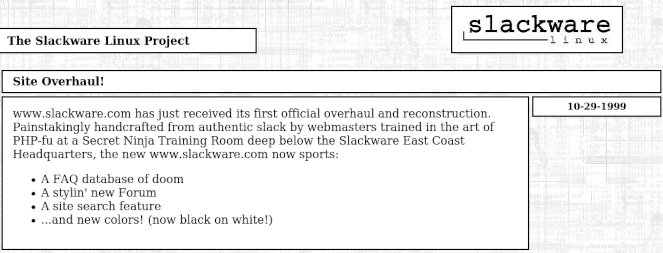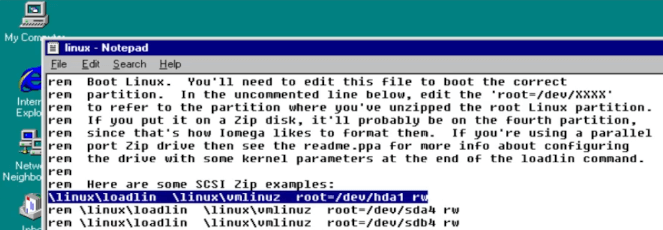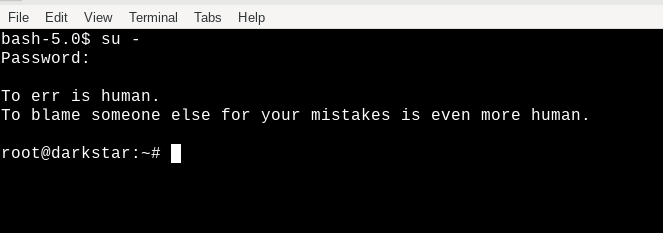Slackware Linux trivia, history, and things you didn't know
In the modern computing era, Slackware might be considered an old relic of a long-forgotten past. The old king may have abdicated the throne, but the embers of past glory still smolder. As we’re on our way towards the release of Slackware 15, allow me to share a few amusing Slackware tales I’ve collected over the years.
The following content is based on second-hand information and my recollection, both likely to be dismissible in a court of law.
The Church of the SubGenius

J.R. ‘Bob’ Dobbs and the Church of the SubGenius spreading the gospel of Slack.
Slackware’s benevolent dictator for life, Patrick Volkerding, has previously confessed that the Slackware name was SubGenius inspired (Slack). Traces of the Church may also be found by looking up the reverse DNS for slackware.com’s public IP address. It points to connie.slackware.com (Connie Dobbs).
New users of the distribution have on occasion raised their concern in public forums to question Slackware’s association with the Church, fearful of any religious influences. In addition to missing the point entirely, I suspect they remain pink to this very day.
The Church of the SubGenius has never properly acknowledged Volkerding’s effort in bringing Slack to geeks around the world. As the story goes, SubGenius founder Ivan Stang once inquired with Volkerding as to whether he owned that Red Hat company.
Real Slackers deplore SUSE Linux

Deutsche Slackware from SUSE.
Today SUSE is predominantly known for its collection of godawful and cringeworthy parody videos on YouTube like “What Does the Chameleon Say”. However, SUSE started out by standing on the shoulders of a giant.
SUSE Linux was originally a German translation of Slackware Linux. The deal between the companies allegedly stated that SUSE would not compete commercially with Slackware in the United States.
As might be expected, this will be the first and last time you’ll ever find the word words “SUSE Linux” on this blog.
Debian was based on Slackware

Debian GNU/Linux.
Stories about how there were talks about merging Debian and Slackware in the early days of GNU/Linux have been around forever, but I never knew that Debian was initially based on Slackware.
The man himself, Patrick Volkerding, shared the following nugget of computing history on LinuxQuestions.org back in 2017, when he replied to a message saying Debian was never Slackware based:
According to what Ian told me on the phone in 1993, it was at one time before it was ever released, for what’s that worth.
- volkerdi
For those unfamiliar with Debian’s history, “Ian” refers to the late Ian Murdock, founder of the Debian project. Alas, Patian GNU/Linux was never to be, and Debian focused on gaining market share at the expense of Slackware Linux.
Slackware.com

Slackware.com - To this very day best viewed in Internet Explorer 4.0.
The 90s called and wants their website back ;-)
No, that’s not a joke. Slackware.com has not seen a redesign since 1999, and from what I’ve gathered, the backend remains mostly unchanged as well. The Slackware userbase doesn’t mind though, seeing how a classic HTML table design works effortlessly in the terminal with lynx. Who needs responsive design optimized for mobile devices in 2020, am I right?
To be fair, there have been initiatives to provide Volkerding with a new website for slackware.com, but for whatever reason, he has chosen to stick with the old site.
And speaking of old, evidence points me to believe that the server hosting slackware.com is running Slackware 12.0.
Slackware trademark

The Slackware trademark has expired.
As you might have seen around the interwebs, slackware.com and associated sites clearly state that Slackware® is a registered trademark of Slackware Linux, Inc.
However, that particular piece of information has not been accurate for quite a long time. Not that it’s ever likely to become an issue, Slackware Linux is 27 years old, and the brand has in all likelihood transcended the need for trademark protection.
ZipSlack

ZipSlack running on Windows 95.
Long before Wubi (Windows-based Ubuntu Installer) ever saw the dawn of light, there was ZipSlack (and eventually BigSlack).
ZipSlack was a special edition of Slackware Linux that could be installed onto any FAT (or FAT32) filesystem with about 100 MB of free space. It used the UMSDOS filesystem and could be installed without the need to repartition the hard disk if the user had DOS or Windows installed.
It was a clever piece of engineering if you ask me. If anyone’s interested, a screen recording of ZipSlack in action on Windows 95 (in a VirtualBox session) can be seen on odysee.com.
$(fortune)

$(fortune) keeping it real for Slackware Linux users.
Despite several complaints throughout the years, Patrick Volkerding has refused to remove the fortune program from Slackware. According to Volkerding, a fortune a day keeps the insanity away.
However, fortune is like a box of chocolate, as I recently experienced first hand when something wicked my way came.
The end?
It doesn’t have to be. Please consider becoming a supporter of Slackware Linux on Patreon to sustain future development.